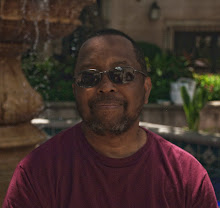
African Americans and white Americans have long had a different view of the celebration of America’s Independence day, July 4th. That disconnect has existed since the Declaration of Independence was written and presented to King George of Great Britain.
A document whose authors proclaimed “We hold these truths to be self-evident, that all men are created equal, that they are endowed by their Creator with certain unalienable rights, that among these are life, liberty and the pursuit of happiness”, men who kept other men in a life of slavery that deprived them of these same rights they themselves called “unalienable”, created a void between whites and blacks that lasts until the present day.
In 1852 while slavery in America was at its zenith, while a Fugitive Slave Law had been enacted that required all American citizens to help apprehend runaway slaves for their masters, the good citizens of Rochester, New York, requested one of their neighbors to deliver an address on the Fourth of July. That neighbor was Frederick Douglass.
The intellectual turmoil of such an invitation had to have worked on Douglass. An escaped slave himself, Douglass had dedicated his life to working for the abolition of slavery. In speeches, in a newspaper he published named The North Star, Frederick Douglass was a tireless worker for African American freedom.
So on July 4, 1852, Frederick Douglass strode to the podium and delivered the following words:
Fellow Citizens: pardon me, and allow me to ask, why am I called upon to speak here today? What have I or those I represent to do with your national independence? Are the great principles of political freedom and natural justice, embodied in that Declaration of Independence, extended to us? Would to God, both for your sakes and ours, that an affirmative answer could be truthfully returned to these questions. But such is not the state of the case.
What to the American slave is your Fourth of July? I answer, a day that reveals to him more than all other days of the year, the gross injustice and cruelty to which he is the constant victim. To him your celebration is a sham; your national greatness, swelling vanity; your sounds of rejoicing empty and heartless; your sermons and thanksgivings a thin veil to cover up crimes which would disgrace a nation of savages.
Douglass was a man of immense courage. This was not a long speech nor was it delivered in an auditorium full of former slaves. I wonder how many of us today would have the same intestinal fortitude as Frederick Douglass did on July 4, 1852.





No comments:
Post a Comment